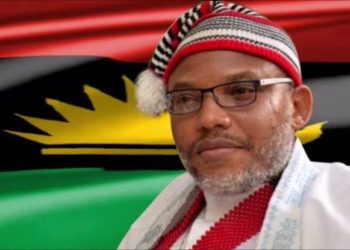Crypto currency has become a topical issue globally and can no longer be ignored, irrespective of how you feel about it. It is a thing many countries are beginning to love and hate, reject and accept all at the same time, and the list of countries in this conundrum are certainly continuing to grow in lips and bounds.
Different countries have reacted differently to the emergence of the super currency that have defied earlier predictions of its chances of survival. Round the world at the moment its acceptance is becoming a conclusion rather than a supposition. Even in the African continent the crypto wave is becoming a tsunami.
In the list of the countries found in this crypto drama is Nigeria, a potentially economic power house in Africa, but yet has been better described as a crawling giant. This is no thanks to people who have found themselves in the position of leadership over the years in Nigeria.
While it is easy to find countries that have tried to crack down on the usage of the digital crypto currencies, on the contrary, it is rather difficult to find one among them that does not have plan in lunching a national version of the digital currency. That’s why this article started with oxymoronic phrases of “love and hate” and “reject and accept”.
Top on the list of countries who are actively cracking down on crypto is the communist Republic of China, an economic superpower of the Asian block. The Chinese government through the country`s central bank, in the month of May gave a matching other to Chinese banks and payment platform to ban the use of crypto in whatever form in China.
This order was promptly complied by all known banks and payment firm in China, including the Commercial Bank of China (ICBC), Agricultural Bank of China (AgBank) and Postal Savings Bank of China. Same was the case with Alibaba`s Alipay of the Ant Group.
However, after this crackdown will come the Chinese government owned digital Yuan which is on all fours a cryptocurrency, different been that its control and tracing will be firmly within the grip of the central authority in Beijing.
The United Kingdom and the European Union are yet more state actors in line with plans for national cryptocurrency plan. The UK’s Chancellor of Exchequer, Rishi Sunak, has dubbed the British Cryptocurrency version as “Britcoin” and plans are on the way to ascertaining the viability of the project.
The British think thanks considering the viability of a national cryptocurrency under the “electronic coinage” system are working on what they refer to as “stablecoin” to rival Bitcoin, the dominant cryptocurrency and king of of the electronic coinage system.
They have argued that Bitcoin “fails the three main tests of a currency – that it is a store of value, that it qualifies as a unit of exchange and that it is a unit of account.”.
In their view the the idea of a stable currency which they presuppose to be Britcoin (the British crypto) will be designed to guarantee some form of stability, by linking the coin to other currencies such as the USD, Euro and even the local Pounds Sterling.
This concept of stablecoin is no doubt gaining global traction and acceptability in the West, including the United States and the European Union (EU). From total rejection of the cryptocurrency regime, the US and the EU are now calling for greater regulation of the stablecoin aspect of the digital currency, which is a version of the crypto that can be pegged on a more stable legal tender such as the USD.
In this regards, the EU Commission have proposed for the collection of personal data of users of crypto, and such data would include – “their name, address, date of birth and account number, and the name of the client.” There argument is that this measure will help bring crypto usage under “anti-money laundering rules, along with transparency requirements for transfers of crypto assets.”
The possibility of a digital dollar and Euro have also been mulled in both the United State and the European Union. In the United States, this idea was first floated in March by the nonprofit Digital Dollar Project, as a private sector initiative with Accenture Plc. The US crypto inkling (Digital Dollar) was further amplified in May, from a top source at the US Federal Reserve.
As the reality of cryptocurrency continues to spread and mutate globally, the European Union also cut the bug, and is now also flirting with the inkling of a Digital Euro. The objective of the regional cryptocurrency to be floated by the European Central Bank, according to it`s president, Christine Lagarde, is “to ensure that in the digital age citizens and firms continue to have access to the safest form of money, central bank money,”.
Speaking further, she says:
“It has been nine months since we published our report on a digital euro. In that time, we have carried out further analysis, sought input from citizens and professionals, and conducted some experiments, with encouraging results. All of this has led us to decide to move up a gear and start the digital euro project,”.
Over here in Africa the growth of cryptocurrency was predicted over three years ago by knowledgeable insiders who saw the tomorrow that has finally come. Writing in the Africa Renewal publication in 2018, Pavithra Rao captioned this view in straight terms – “Africa could be the next frontier for cryptocurrency”.
An expert in the crypto field by name Mr. Darko, was also reported to have stated emphatically that: “Truth be told, Africa needs blockchain technology and its resultant cryptocurrencies more than any part of the world,”.
Some years after, Nigeria is leading the world, just behind the United States in the cryptocurrency exchange. This is irrespective of the CBN`s woefully failed attempt to crack down on crypto trading in Nigeria.
The Nigerian Central Bank (CBN) had earlier in the year banned the trading of Cryptocurrency in the country. This was sequel to a circular released to the banks and other financial institutions specifically prohibiting all forms of transactions on cryptocurrencies, including facilitating payment for cryptocurrency exchanges.
This was an audacious move by the CBN to crack down on cryptocurrency trading in Nigeria, but alas, it was as numb as it was ineffective in slowing a moving train. Chainalysis`s research report shows that the Nigerian crypto trade volume in USD terms, just three months after the ban took effect in February was $2.4bn, moving up from $684m which it was as at end of 2020.
Also, crypto transaction in Nigeria is found to have increased about 50% in the first five months of 2021 than what was recorded in the country in the first five months of 2020. There cannot be more clearer indication than this in the direction that the reality of crypto trading in Nigeria is a long forgone conclusion.
The growth of cryptocurrency trading is no doubt beyond the control of the Nigerian government, irrespective how much it tries. This is a fact the government already admitted year ago when the CBN said they cannot control cryptocurrency trading “just the same way no one is going to control or regulate the internet. We don’t own it.”
It is therefore either an intentional self-dilution by the government or a believe it holds that cracking down on the crypto pandemic will foster a breeding ground for the countries own Digital Naira which was announced just last month.
This may not be far from the reality as it now appears to be a global trend to first crackdown on the viral, borderless and untraceable digital currencies for a government backed and controlled option.
There are many cases to be made in favour of a regulated digital currency all over the world, Nigeria included. There are also multiple benefits of the digital coin system generally, regulated or unregulated. However, that will not be covered in this current article.
In conclusion, the inkling of a stablecoin or state controlled digital coinage system could for now be welcome as an “emergency vaccine” for the identified virus (risks) associated with the current uncontrolled digital currency regime.
So, there is no doubt that Digital Naira expected in October of this year will be landing on a very fertile ground in the Nigerian financial system as the country`s young population continues to fuel the rise in crypto transactions in the country.
Written by Williams Ukonu Esq, a lawyer and social critique. He wrote in from [email protected]












